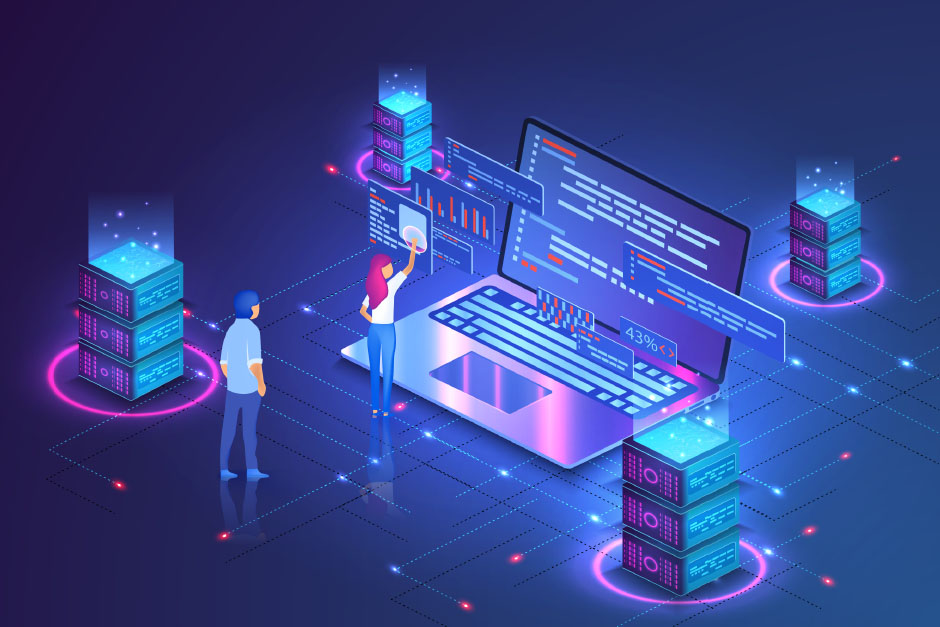
In today’s fast-paced digital age, technology is not just a tool; it’s a transformative force shaping every aspect of our lives. From communication to commerce, entertainment to education, technology’s influence is pervasive. In this article, we delve deep into the myriad ways in which current technology is shaping our digital world, exploring its impacts, innovations, and opportunities.
The Evolution of Technology
Technology has come a long way, from the invention of the wheel to the age of artificial intelligence. Over centuries, humans have continually innovated and improved upon existing technologies, leading to monumental shifts in how we live, work, and interact.
Internet of Things (IoT) Revolution
The Internet of Things (IoT) is revolutionizing the way devices interact and communicate with each other. IoT is ushering in an era of interconnectedness and efficiency from smart homes to industrial automation.
Artificial Intelligence (AI) and Machine Learning (ML)
AI and ML are at the forefront of technological innovation, enabling computers to learn, reason, and make decisions like humans. From personalized recommendations to autonomous vehicles, the possibilities are endless.
Blockchain Disruption
Blockchain technology, best known as the backbone of cryptocurrencies, is disrupting industries far beyond finance. Its decentralized and secure nature revolutionises supply chains, healthcare, and even voting systems.
Augmented Reality (AR) and Virtual Reality (VR)
AR and VR are blurring the lines between the physical and digital worlds, creating immersive experiences for gaming, education, and even virtual meetings. These technologies’ future possibilities are limitless.
Big Data Revolution
The proliferation of data has given rise to the big data revolution, where vast amounts of information are analyzed to uncover insights and drive decision-making. From targeted advertising to predictive analytics, big data is reshaping industries.
Cybersecurity Challenges and Innovations
With increased connectivity comes the need for robust cybersecurity measures. Cybersecurity challenges are ever-evolving, from data breaches to ransomware attacks, driving innovation in encryption, biometrics, and threat detection.
Mobile Technology Transformation
Mobile technology has transformed how we access information, communicate, and conduct business. With smartphones becoming ubiquitous, mobile apps drive innovation in healthcare, finance, and transportation.
Cloud Computing Revolution
Cloud computing has democratized access to computing power, enabling businesses of all sizes to scale and innovate rapidly. From infrastructure as a service (IaaS) to software as a service (SaaS), the cloud is powering the digital economy.
Impact on Communication
Technology has revolutionized communication, breaking down barriers of distance and time. From email to social media, instant messaging to video conferencing, communication has never been more accessible or efficient.
Transforming Healthcare
Technology is revolutionizing healthcare, from telemedicine to wearable devices that monitor vital signs. AI-powered diagnostics, robotic surgery, and personalized medicine are transforming how we prevent, diagnose, and treat diseases.
Education in the Digital Age
The digital age has transformed education, making learning more accessible and personalized. Online courses, virtual classrooms, and interactive learning platforms revolutionise traditional education models.
E-Commerce Revolution
E-commerce has revolutionized our shopping, with online retail giants offering convenience, choice, and competitive pricing. From groceries to gadgets, consumers can now purchase almost anything with the click of a button.
Entertainment and Media Transformation
Technology has transformed the entertainment industry from streaming services to immersive gaming experiences. Virtual concerts, augmented reality filters, and AI-generated content are shaping the future of entertainment.
Environmental Impact of Technology
While technology has brought about numerous benefits, it also poses environmental challenges. From e-waste to carbon emissions, the digital revolution has a significant ecological footprint that must be addressed through sustainable practices.
Future Trends and Predictions
The pace of technological innovation shows no signs of slowing down. From quantum computing to space exploration, the future promises even more groundbreaking discoveries and paradigm shifts.
Ethical Considerations
As technology advances, ethical considerations become increasingly important. Privacy, data security, and algorithmic bias must be addressed to ensure technology benefits society.
The Role of Regulation
Regulation plays a crucial role in shaping the trajectory of technological development. From antitrust laws to data protection regulations, governments worldwide are grappling with how best to balance innovation with consumer protection.
Opportunities for Entrepreneurs
The digital revolution has created unprecedented opportunities for entrepreneurs to innovate and disrupt traditional industries. From tech startups to e-commerce ventures, the possibilities are endless for those willing to seize them.
Digital Inclusion and Accessibility
Ensuring digital inclusion and accessibility is essential in a world increasingly reliant on technology. From bridging the digital divide to designing inclusive user interfaces, efforts must be made to ensure technology is accessible to all.
Challenges in Adoption
While technology holds immense potential, its adoption is not without challenges. Resistance to change, lack of infrastructure, and digital literacy barriers are just some of the obstacles that must be overcome for widespread adoption.
Workforce Automation
The rise of automation and AI is reshaping the workforce, leading to fears of job displacement. However, it also presents opportunities for upskilling, reskilling, and creating new jobs in emerging fields.
Impact on Traditional Industries
Technology is disrupting traditional industries, forcing businesses to adapt or face obsolescence. From traditional retailers to legacy media companies, embracing digital transformation is key to survival in the modern economy.
Smart Cities and Urban Development
Technology is transforming cities into smart, interconnected ecosystems that optimize resources and enhance quality of life. Smart city initiatives are revolutionizing urban development from smart grids to autonomous vehicles.
Personal Privacy Concerns
As technology becomes more pervasive, personal privacy concerns become more prominent. Balancing privacy rights with technological advancements is a delicate and ongoing challenge, from data collection to surveillance.
Social Media Dynamics
Social media has revolutionized how we connect, communicate, and consume information. From viral trends to influencer marketing, social media dynamics shape public discourse and cultural trends.
Gaming and Esports Revolution
Gaming and esports have become multi-billion dollar industries, driven by technological innovation and global connectivity. From competitive gaming to virtual reality experiences, gaming is more immersive and accessible than ever.
Innovations in Transportation
Technology is revolutionizing transportation, from electric vehicles to autonomous drones. Transportation innovations are reshaping how we move goods and people, from reducing carbon emissions to improving safety.
Technological Empowerment
Technology can empower individuals and communities, enabling access to information, resources, and opportunities previously out of reach. From digital literacy programs to crowdfunding platforms, technology empowers users to effect positive change.
The impact of current technology on our digital world is profound and multifaceted. From transforming industries to reshaping how we live, work, and interact, the possibilities are limitless. As we navigate the opportunities and challenges of the digital age, one thing is clear: technology will continue to shape our world in ways we can only imagine.



